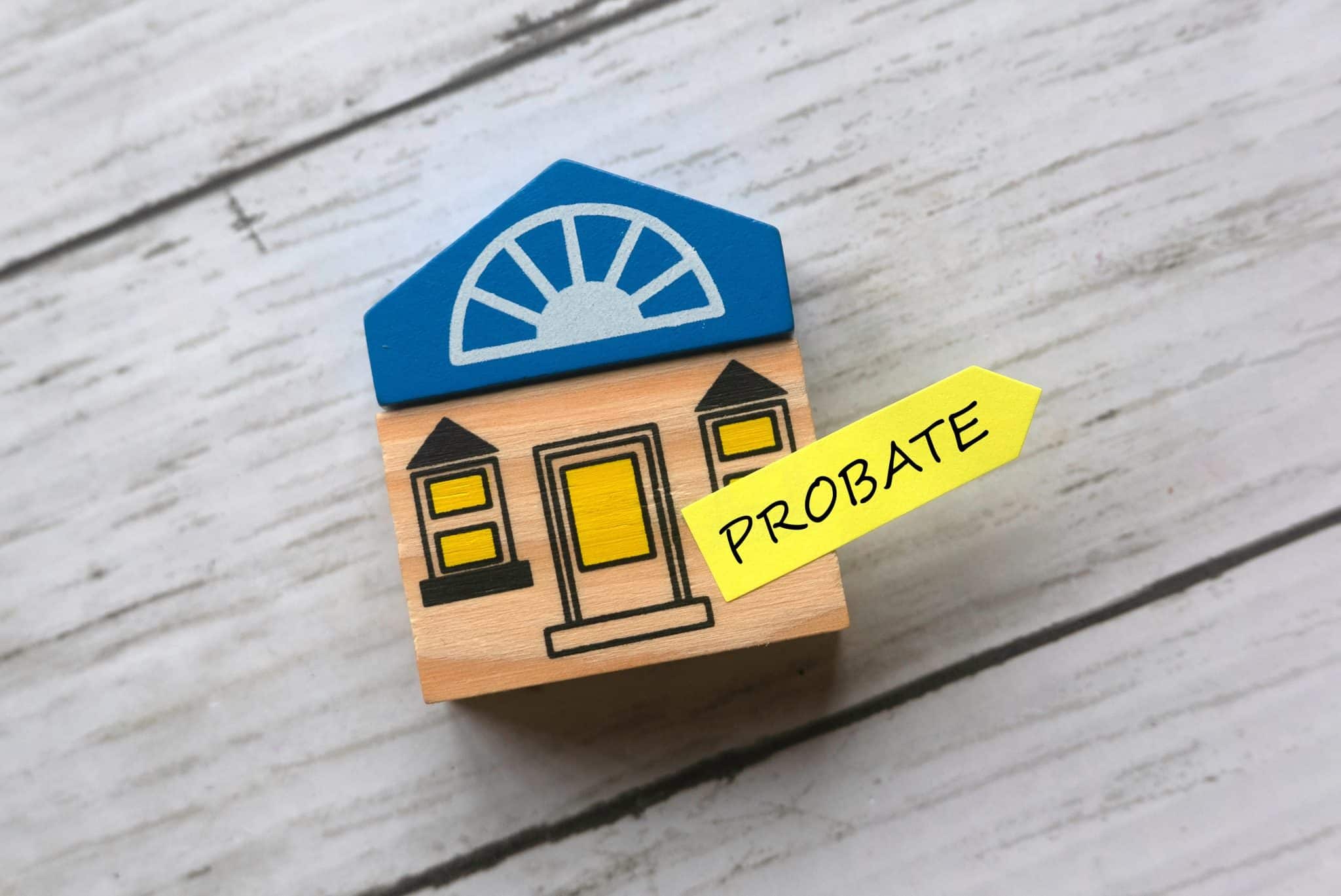Wondering exactly ‘how long does grant of probate take’ in the UK?
Following the death of a loved one in the UK, there are different legal procedures follow such as registering the death, organising the funeral, and obtaining probate to handle their estate.
Unfortunately, these processes aren’t automatic, and they can take anywhere from a few days to months to complete, making an often-difficult time substantially more stressful and time-consuming.
To help explain the probate process in the UK and alleviate some of the pressure, we’ve answered a few of the most frequently asked questions regarding the probate timeline including when you should apply, how you can apply, and when you’re likely to be granted probate.
Regardless of whether you’re preparing to apply for probate or have already submitted an application and are waiting for a decision, the experienced probate solicitors at Freeman Jones Legal can make this process easier.
What are the stages of probate in the UK?
To provide a comprehensive answer, it’s important to explain the stages of obtaining probate. Issues at any of these can only prolong the process, so it’s worth becoming familiar with each step before you start the application.
Pre-application steps
Prior to applying for probate, there’s a list of steps that should be completed following the death of a loved one. This includes registering their death, notifying the government of the death, and arranging the funeral.
After the funeral, you may want to check whether you’re eligible to receive bereavement benefits, alongside dealing with your own benefits, pension, and taxes. For additional support during this often upsetting and stressful period, you may even choose to access bereavement support and services.
Finally, if your right to live in the UK is dependent upon your relationship with the deceased, you should also check whether you need to apply to stay. You can then arrange for the estate of the deceased to be valued and find out if you need to pay inheritance tax.
Once the estate has been valued, you’ve received a death certificate, and you’ve waited 20 working days after paying any necessary inheritance tax, you can begin the process of applying for probate. It’s worth bearing in mind, however, that there are some circumstances in which probate isn’t required.
Generally, you won’t need to apply for probate if the deceased’s estate is valued at less than £5,000. However, it’s recommended that you discuss this with the deceased’s financial institutions first as they each have their own probate thresholds.
Applying for probate
Once you’ve completed the necessary steps above and determined that probate is necessary, you can either go online or apply via post for probate. Alternatively, you can contact a specialist probate solicitor to apply for probate on your behalf.
To apply online, simply head online and fill in the relevant information using the HM Courts and Tribunal Service (HMCTS). This online form is long and complex, but does allow you to pay the fee online and lets you submit a Statement of Truth to declare that the information you’ve provided is correct (instead of swearing an in-person oath).
It’s worth bearing mind, however, that this digital probate application system still requires a variety of forms and proof to be sent in paper form, such as the will and death certificate.
If you’d prefer to apply via post, you will need to fill in either a PA1P form (applicable for deceased individuals who left a will) or a PA1A form (for those who did not leave a will). Once you’ve completed the relevant form, simply send it to the address stated on the document.
For individuals wanting to use a solicitor to apply for probate on their behalf, it’s common for individuals to use the same law firm that the deceased used to write their will. Ultimately, however, you should choose a law firm with experienced probate solicitors that you trust.
Why not get in touch with the team of expert probate lawyers at Freeman Jones Legal to discover how we can help?
Receiving approval
If your probate request has been successful, you’ll receive either a grant of probate, letters of administration, or letters of administration with will annexed. A grant of probate will be issued if the deceased individual left a will, while letters of administration are issued if the individual did not leave a will.
Letters of administration with will annexed are given in cases where a will does exist, but an executor is either not named or the named executor cannot or doesn’t want to apply for probate. Once you’ve received one of these legal documents, you can begin dealing with the estate.
How long is UK probate currently taking?
Unfortunately, there’s no set probate timeline in the UK because applications for probate are issued by the Probate Registry (part of the HMCTS). However, Government guidance states that the Probate Registry is currently taking 16 weeks to process probate applications once they’ve been submitted.
Consequently, even relatively straightforward probate requests can take months to be approved.
How long can it take in the UK?
In general, probate takes between six and 12 months. You should bear in mind, however, that this probate timeline can be shortened (or lengthened) due to a wide range of factors that we explore in greater detail below.
Can you speed up probate?
Put simply, no, you cannot speed up the granting of probate. However, you can make your application easier to process by including as much accurate information as possible. If you need to provide additional detail, this will only prolong the process.
In some exceptional cases where the request is justified, you may be able to ask the Probate Registry to process the application quicker. However, there’s no guarantee that this would speed up the probate.
What is the quickest way to get probate?
While you can’t speed up the granting of probate once your application has been submitted, you can make the process of applying more efficient. To do this, you may want to consider hiring an experienced solicitor to apply for probate on your behalf.
A professional probate solicitor will be able to expertly fill in and navigate this long and complex legal form. This can help to prevent mistakes and inaccurate information being included which can lead to problems processing your application further down the line.
Alternatively, if you’d prefer to apply for probate yourself, it’s often quicker to apply online than using the postal method.
What can hold up probate?
There are many factors that can prolong the granting of probate including issues with the will, the death of the will executor, problems tracing family, third-party delays, inheritance tax issues, and will disputes. Missing or incorrect information in your application can also delay the granting of probate.
Issues with the will, for example, can include self-written wills that may be ambiguous and therefore challenged by other family members (which can give rise to a costly and time-consuming dispute). Self-written wills can also fail to name an executor which can make identifying a suitable individual who can apply for probate even harder.
Another individual can also stop all applications for an estate being granted for six months by entering a caveat. This is a common form of legal action taken by individuals when there is a dispute regarding either the existence or validity of the deceased’s will, or when there is a dispute regarding who can apply for probate.
There is an initial fee for entering a caveat, and a fee on top of this if the caveat is extended beyond the first six months. The individual entering a caveat will likely try to come to an agreement with the person applying for probate first in an attempt to avoid potentially costly and stressful litigation.
If you want to try to prevent hold ups to being granted probate, you can take preventative action by ensuring a professional will has been created and appropriately stored. As well as being exceptionally clear to help avoid disputes, the will should also name a substitute executor in the event that the first executor is unable to deal with their estate.
Can I check the progress of probate?
Yes, you can check the progress of probate by tracking your application online. Alternatively, you can also track the progress of your application by contacting your solicitor, if they’re applying on your behalf. They will be able to access the same information and provide you with updates.
Can you track a probate application UK online?
Yes, you can easily track the progress of your probate application online in the UK by heading to the Gov.uk website. Here, you can sign into the probate service and see completed applications as well as the progress of any existing applications.
Why do solicitors take so long to get probate?
Due to the delays in probate grants being issued by the Probate Registry, individuals and solicitors are facing a significant wait for probate. These applications can take months to approve because they involve a substantial amount of complex legal issues including tax and administrative work that is often incredibly time-consuming.
What is the longest it can last?
While the size of the deceased’s estate and availability of necessary information will naturally affect the duration of probate, just over a year tends to be the longest timeframe for probate. Unfortunately, there’s no set time limit for the probate application process, but a variety of legal and tax issues can increase this 12-month timeframe.
How long after do you receive money?
Once granted, you can collect some assets within just three weeks.
However, other assets, such as shares and property, will need to be sold before you can receive any money from them.
Similarly, if the deceased owned foreign assets, has missing beneficiaries, or a life insurance policy, it may take some time and investigation before any money from these assets can be released.
Receive expert probate support from Freeman Jones Solicitors
For more comprehensive answers to probate-related queries like ‘How long does grant of probate take?’, turn to the experts at Freeman Jones Solicitors.
We offer professional support with the probate process in the UK and can guide you through the probate timeline. We can help you to obtain grant of probate and execute a loved one’s wishes as stated in their will.
Despite being based in Chester, we can support customers across the country as we’ve also opened offices in Liverpool, Warrington, and Wrexham. To find out more about our extensive probate and will services, why not contact our team today to arrange your free, no-obligation, 20-minute consultation?
To speak directly to a member of our team, simply give us a call on 01244 506 444. Alternatively, you can also get in touch by sending your enquiry via email to info@fjsolicitors.co.uk, or by filling out our handy online contact form.
However you decide to reach out to our expert team of solicitors, you can rest assured we’ll get back to you shortly to learn more about your requirements.






